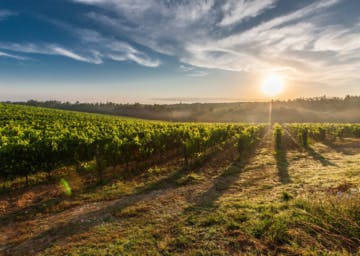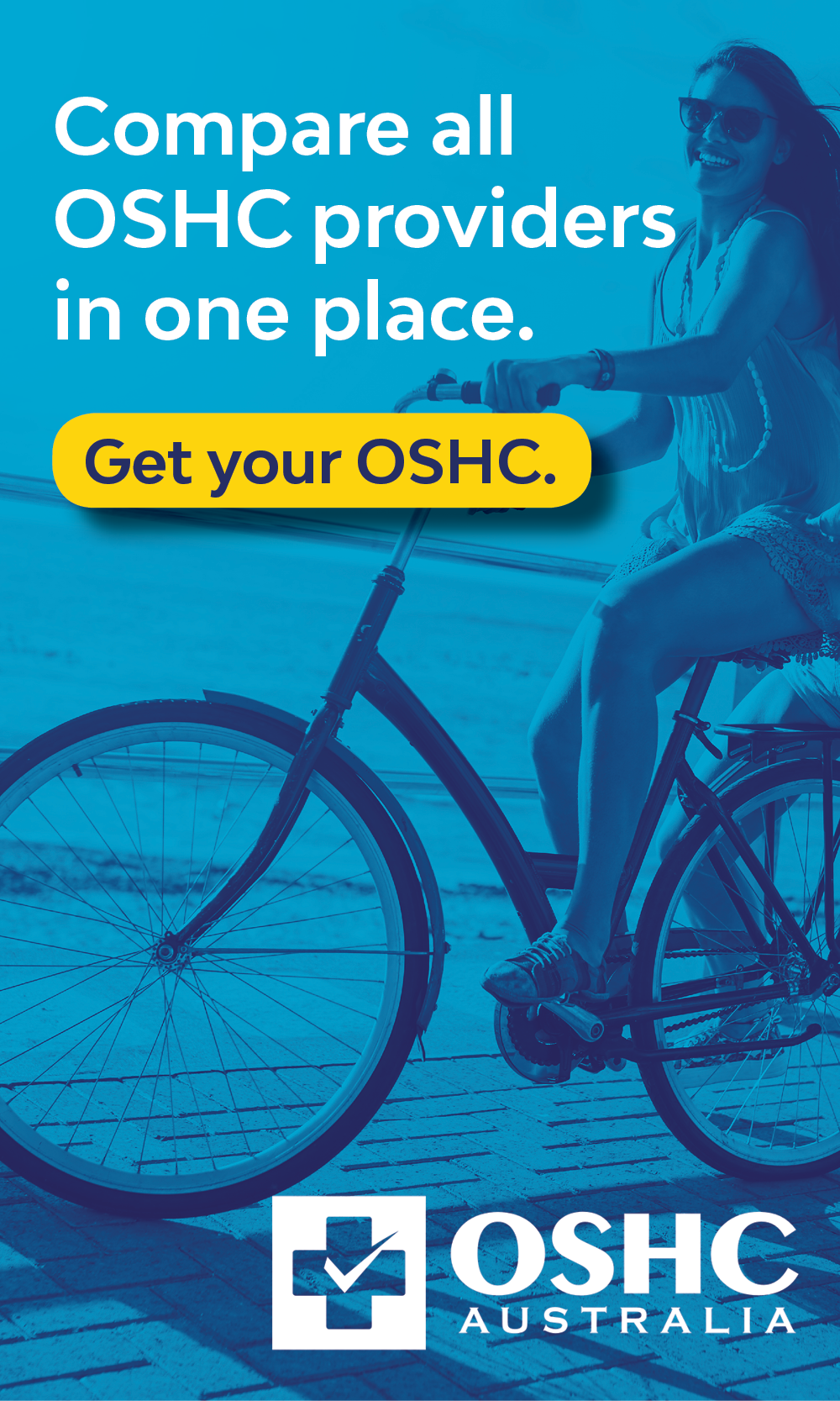Make Adelaide your second home, as tens of thousands of international students have before you. In fact, 20 per cent of people living in Adelaide aren’t from Australia at all!
Rated the world’s tenth most liveable city in The Economic Global Liveability Index, this welcoming, multicultural city makes an ideal home away from home. The perfect combination of city and country, Adelaide is not too big and not too small.
Adelaide has one of the highest standards of living of any city in the world, yet is one of the least expensive. Living in Adelaide will cost you 7 per cent less than if you were to live in Brisbane and Perth, and is 19 per cent more affordable than Sydney and Melbourne! You can use all that extra cash to have some fun in the heart of the city, or travel just out of Adelaide to experience beautiful beaches, vineyards and outback.
Planning ahead, setting financial habits and choosing realistic living options will help to improve your standard of living when arriving in Australia. We have compiled everything you need to know about budgeting for your big move, including average costs of accommodation, transport, health, admin, entertainment and phone charges in Adelaide, Australia.
Accommodation
Campus accommodation
If you have only recently moved out of home, campus accommodation will soften that transition period into your independence. The average cost of living on campus at a university in Adelaide ranges between $250 to $510 per week. Campus accommodation comes with its benefits and convenience, with offerings such as a private fully-furnished room, study support, a welcoming community, and fully catered meals in dining halls plus shared communal kitchens.
Utilities are included, and you will most likely be travelling less than you would if you lived off campus. However, you will still need to budget for eating out, health costs, your phone bill and entertainment. Click here to view all Residential Colleges.
Weekly cost: $250 - $510
Annual cost: $13,000 - $26,520
Student accommodation
Do you want a similar experience and culture to living on campus, but at a ‘budget’ price? Commercial accommodation for students is scattered across Adelaide’s CBD. Student accommodation such as UniLodge, Urbanest, and Dwell are great options if you want to stay somewhere in the city centre and near other like-minded students.
The cost will vary depending on the company and your room choice, however, it’s important to remember this only includes your rent and utilities. Food, entertainment, eating out, phone and health costs will all need to be factored in. Click here to view all Purpose-Built Student Accommodation.
Weekly cost: $90 - $280
Annual cost: $4,680 - $14,560
Sharehouse accommodation
Moving into a sharehouse will work out to be the cheapest option (on average) when you move to Australia.
Forecasting a budget for a sharehouse can be tricky, with a number of factors to be considered. For example:
- Where is it located?
- How many tenants are you moving in with?
- How old is the house?
Your individual preference on the factors above will impact the price. On average, you can expect to pay between $85 to $215 per week in Adelaide, but keep in mind this does not include your utilities. Flatmates and Flatmate Finders are popular sites to find shared accommodation that will usually fall on the cheaper end ($85) of the rental price.
Keep in mind that if you choose to rent privately, you’ll be responsible for all utility costs and preparing all your meals. Though you can find fully or partially furnished private rentals, usually you are also responsible for providing your furniture. Click here to view all Private Rentals.
To note: When signing a lease for a share house in Australia you are expected to pay an upfront security bond payment to the RTBA (Residential Tenancies Bond Authority). The standard is 4 x your weekly rent payment, but could be more depending on the individual home. Once you have decided to move out of your sharehouse, you will receive your bond back (minus any damages or cleaning fees).
Weekly cost: $85 - $215
Annual cost: $4,420 - $11,180
Temporary accommodation
If you aren’t sold on any of the above options, you can always book in something short-term when you first get to Australia and settle on a long-term option later. Having the option to fly over and check out the university and surrounding suburbs will give you the freedom to have a good look around and get a feel for the place so you can be sure of what will suit you best.
Because this is a short-term option, we suggest looking into short stay accommodation. YHA Australia has plenty of options or you can check out lower rate hotels on Wotif and Last Minute, who both offer advance and last-minute discounts.
Weekly cost: $130 - $480
Monthly cost: $520 - $1,920
Utilities
You can’t forget to factor in utilities, which may or may not be included in your housing option. Electricity, water, gas and internet are generally split between tenants, but if you are planning on renting by yourself, this will be more costly. The average utility costs for a home in Adelaide include:
- Electricity: $500 per quarter
- Water: $300 per quarter
- Gas: $169 per quarter
- Internet: $120 per quarter
The below budget varies depending on whether you’re renting yourself, or splitting the bills with five people.
Weekly cost: $15 - $80
Annual cost: $780 - $4,356
Accommodation annual range $5,200 - $30,876
Transport
Adelaide offers an extensive network of trains, trams and buses that will conveniently drop you from A to B in the city and greater metropolitan area. As an international student you can save up to $700 AUD per year on transport costs, thanks to the South Australian Government concessions for all international students. As well as this discounted service, free tram and bus services are offered in Adelaide’s city centre.
Adelaide Metro is Adelaide’s public transport system, providing cost effective and efficient travel throughout the city and the greater metropolitan area. To travel on the public transport system, you’ll need to pay for your fare using either a MetroCARD or Metroticket.
Tertiary students in Adelaide can enjoy unlimited travel on a 28-Day Pass for $50, and primary and secondary school students for $25.50.
Weekly cost: $12.50 - $15
Annual cost: $650 - $780
Transport annual range $650 - $780
Food & drinks
This is where budgeting gets tricky. With the rise of UberEats and MenuLog in Australia, it’s harder than ever to motivate yourself to cook or prepare meals at home. We all know deep down that buying groceries and meal prepping would be the most cost-efficient method to save money, so now is the time to adapt and make it a habit.
Groceries
Depending on your taste preferences and whether you are eating salmon or sticking with canned beans for dinner, the average cook-up at home will cost you:
- $2 a day for breakfast
- $5 a day for lunch
- $11 a day for dinner
Eating out
Eating out will cost you a significant amount more, with the average prices of meals in Adelaide:
- $18 for breakfast
- $18 for lunch
- $20 per meal at dinner.
Drinking out
Coffee, Coffee, COFFEE. If you are a coffee drinker and you have an acquired taste for barista-made coffee, you will know we are looking at a budget killer here. An average cup of coffee in Australia is $4.20 per cup. Depending on your weekly threshold you could be looking to spend between $655 - $1528.80 a year just on that delicious liquid.
To save some money, you can make your own coffee at home – it’s FREE.
Other than coffee, the average Aussie loves a social glass of wine, beer or kombucha with their lunch. On average in Australia, a glass of wine, beer or cider ranges between $10-$12 each, with spirits being on the more expensive side, costing around $12-$25.
If you were to eat all your meals at home for 6 out of the 7 days ($108) and indulge on Saturday ($50) you are looking at spending around $165 per week on food. Adding on 3 coffees per week ($12.60) and 3 social drinks ($36), your weekly total would be around $210. This total will vary significantly depending on individual habits and preferences.
Weekly cost: $200 - $365
Annual cost: $10,400 - $18,980
Food + drinks annual range $10,400 - $18,980
Admin & stationery
Assuming you are bringing a computer or iPad from home, you will just need to worry about your admin/stationery costs. Officeworks and Kmart will be your best friends for budget-friendly stationery.
- Note books: $3 - $15
- Yearly diaries: $6 - $50
- Stationery accessories: $1 - $10
Weekly cost: $1 - $4
Annual cost: $60 - $200
Admin & stationery annual range $60 - $200
Health
Overseas student health cover is mandatory for your student visa when coming to Australia. Not only is it great for peace of mind, it covers doctors' appointments, hospital costs, emergency ambulance and prescription medicine.
Use the Overseas Student Health Cover (OSHC) tool to check the price and book your overseas health cover today.
Entertainment & activities
Entertainment is another expense you will want to factor in while you are in Australia. From watching a movie or taking a trip to the beach to enjoying a comedy show or going to the gym, the options are virtually limitless. Below are a few different options you could add to your budget.
- Movies (student night): $7 - $9
- Fitness: $15 - $30
- Shows (comedy, plays etc): $50
Weekly Cost: $72 - $89
Annual Cost: $3,744 - $4,628
Entertainment & activities annual range $3,744 - $4,628
Phone
A prepaid phone plan is the way to go when you are coming to Australia with a working phone. Some options are:
- Optus My Plan Plus 12M SIM
undefinedundefinedundefined - Telstra 4G Pre-Paid Max
undefinedundefinedundefined
Visit Finder to compare more phone plans and pre-paid options.
Weekly Cost: $7.5 - $15
Annual Cost: $360 - $780
Phone annual range $360 - $780
TOTAL Weekly Budget: $393 - $1,078
TOTAL Annual Budget: $20,414 - $56,244
Check out the South Australian Instagram page for all the MUST-SEE attractions that will be on your doorstep. Whether you are coming over to Adelaide on a tight budget or have been saving up so you can spend big, save on international money transfers with Cohort Go. Visit our website to learn more.





